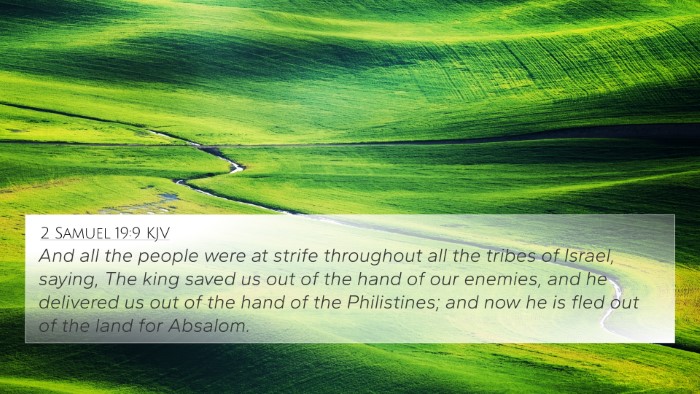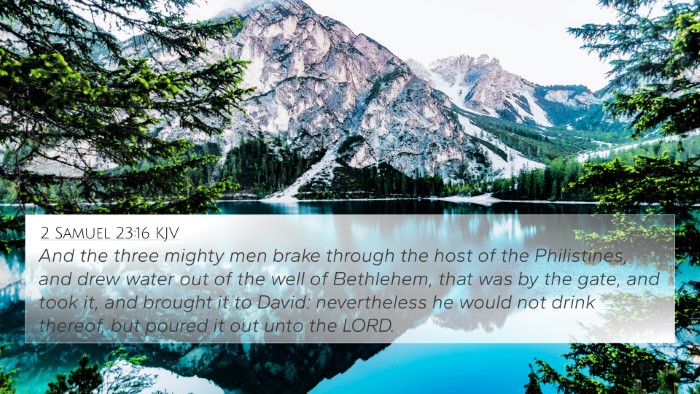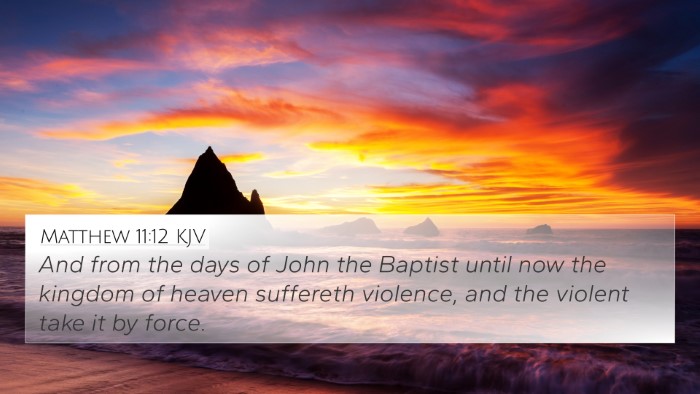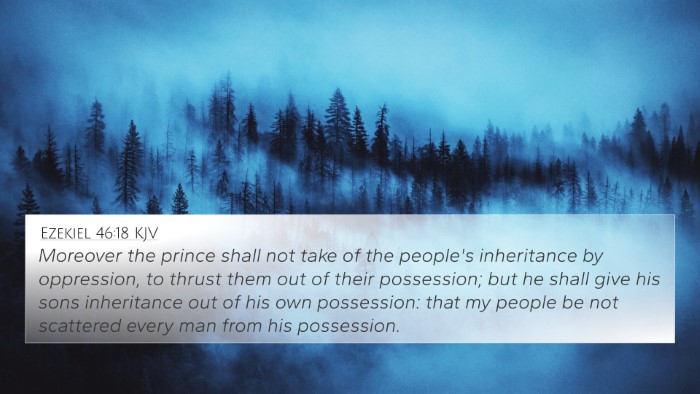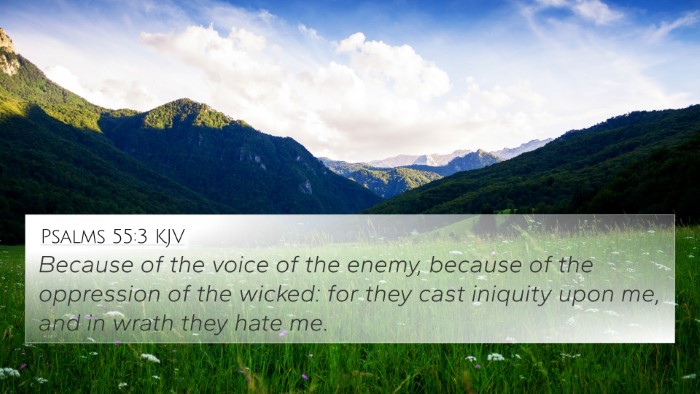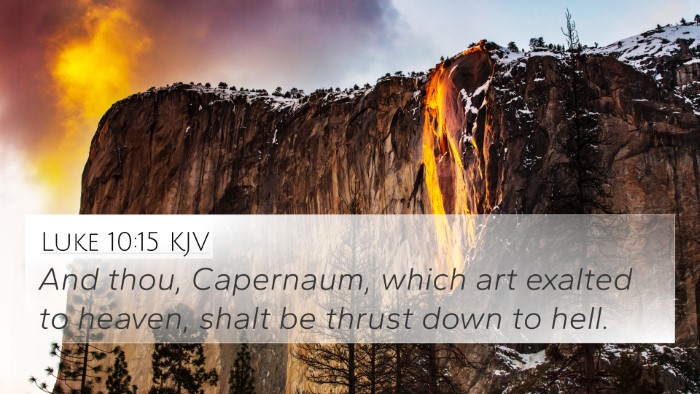Understanding 2 Samuel 15:14
Bible Verse: 2 Samuel 15:14 - "And David said unto his servants, Arise, and let us flee; for we shall not escape from Absalom: make speed to depart, lest he overtake us suddenly, and bring evil upon us, and smite the city with the edge of the sword."
Summary of 2 Samuel 15:14
This verse captures a critical moment in King David's life, reflecting on his reaction to the threat posed by his son Absalom, who sought to overthrow him. David's immediate response is one of urgency and fear, showing the complex dynamics of his family and leadership.
Commentary Insights
-
Matthew Henry:
Henry emphasizes the gravity of David's situation. He points out that David, despite being a mighty king, is forced to abandon his throne and escape for his life. This highlights the precariousness of power and the deep-seated family conflicts that can arise. Henry also remarks on the necessity of escape to avoid bloodshed, indicating David's heart for the people of the city.
-
Albert Barnes:
Barnes interprets this verse as an expression of David's wisdom in crisis. Instead of fighting his son and inciting bloodshed, David chooses a path of prudence and retreat. He recognizes the folly of remaining in the city under threat and prioritizes the safety of his people along with his own, suggesting that sometimes retreat can be a more honorable choice than confrontation.
-
Adam Clarke:
Clarke delves into the emotional weight of David’s decision. He notes that fleeing from Absalom was not just a tactical withdrawal but a sorrowful acceptance of a painful betrayal. Clarke highlights the tragedy of a father having to flee from his son, underlining the personal toll of Absalom's rebellion on David.
Cross-References for Further Study
In exploring 2 Samuel 15:14, several cross-references enhance our understanding of the themes presented:
- 2 Samuel 13:28-29: This passage recounts the murder of Amnon, Absalom's first act of rebellion which sets the stage for later conflict.
- 2 Samuel 16:11-12: Here, David acknowledges the nature of his trials and the possibility of suffering at the hands of his own son, reflecting on divine justice and mercy.
- Psalm 3: Associated with David’s flight from Absalom, this Psalm expresses his trust in God amidst overwhelming odds.
- 1 Kings 2:5-6: This foreshadows further conflicts within David's family, detailing the consequences of actions taken during his kingship.
- Luke 14:31-32: These verses imply the wisdom of calculating the cost of conflict, as David did in deciding to retreat rather than confront.
- Matthew 10:36: Jesus speaks of family betrayal, echoing David's experience with Absalom and the pain caused by familial strife.
- James 1:12: This verse ties into enduring trials and temptations, offering hope that resonates with David's situation as he seeks refuge.
Thematic Connections
The themes surrounding 2 Samuel 15:14 can be recognized in various biblical contexts:
- Betrayal: Reflects on family betrayal and the heartache it causes, prevalent in the narratives of both David and Jesus.
- Leadership and Responsibility: Highlights the burden of leadership and the sometimes painful decisions leaders must make for the greater good.
- Suffering and Trust in God: The common thread of faith in the face of adversity flows through the experiences of David and other biblical figures.
- Divine Justice: Addresses the consequences of sin and rebellion within families, leading to a broader study of God's justice throughout Scripture.
- Flight and Refuge: The act of fleeing captures the human instinct for survival, echoed in various stories of deliverance in biblical history.
Application and Reflection
As we consider 2 Samuel 15:14, we are called to reflect on the complexities of our relationships and the challenges we face in leadership and personal responsibility. David's decision to flee reminds us that sometimes the path of peace requires difficult choices.
Furthermore, engaging with cross-references strengthens our understanding of the interconnectedness of the biblical narrative, allowing us to see how individual experiences resonate across different texts and themes.
Conclusion
2 Samuel 15:14 serves as a poignant reminder of the struggles faced by leaders and the personal costs of conflict. Through examining commentaries and cross-references, we can gain a richer understanding of Scripture's depth and its implications for our lives today.



